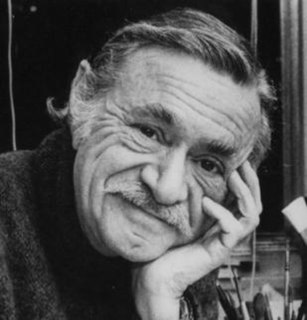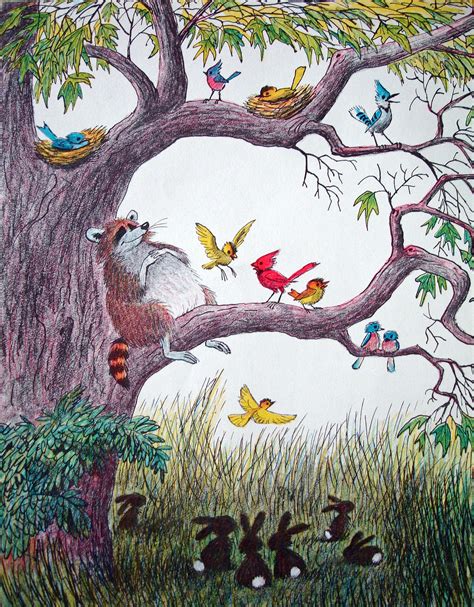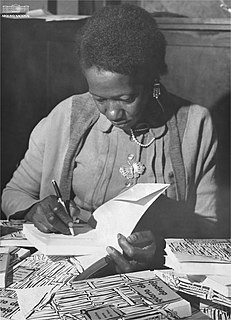A Quote by Ezra Jack Keats
Then began an experience that turned my life around-working on a book with a black kid as hero. None of the manuscripts I'd been illustrating featured any black kids-except for token blacks in the background. My book would have him there simply because he should have been there all along. Years before I had cut from a magazine a strip of photos of a little black boy. I often put them on my studio walls before I'd begun to illustrate children's books. I just loved looking at him. This was the child who would be the hero of my book.
Quote Topics
Along
Any
Around
Background
Because
Been
Before
Began
Begun
Black
Black Boy
Blacks
Book
Books
Boy
Child
Children
Children's Books
Cut
Except
Experience
Featured
Had
Hero
Him
Illustrate
Illustrating
Just
Kid
Kids
Life
Little
Looking
Loved
Magazine
Manuscripts
My Life
None
Often
Photos
Put
Should
Should Have
Should Have Been
Simply
Strip
Studio
Them
Then
Token
Turned
Walls
Working
Would
Would Be
Years
Related Quotes
Heroine: Girl in a book who is saved from drowning by a hero and marries him next week, but if it was to be over again ten years later it is likely she would rather have a life-belt and he would rather have her have it. Hero: Person in a book who does things which he can't and girl marries him for it.
I am an author-illustrator of children's books - and yet - I must confess I don't do the books for the kids. When I'm working on a book I'm somewhere else - at the circus - or a rustic old farm - or deep in a forest - with no thought of who might read the book or what age group it would appeal to. I write them so I can illustrate them.
I've been on predominantly 'white' shows before, and I had also been on predominantly 'black' shows. I would complain that when I was on a white show, they would only hire me because there was a black character or they needed a black voice. But then I would be mad if they went and hired a white dude in my position.
I would say except when I have been attacked the black community has seldom seen fit to even mention the gay aspect. And since when I have been attacked I have usually been defended by the black community, I would say that the black newspapers have played it very straight. If I was attacked they simply published that I was attacked, if I was defended they simply said I had been defended. But I don't think they have taken any effort at maligning me or maligning gays or making any effort to give to people anything that wasn't news.
Parker wasn't supposed to be a series. He was supposed to be one book, and if he was only going to be in one book, I didn't worry about it. And then an editor at Pocket Books said "Write more books about him." So I didn't go back at that point and give him a first name. If I'd known he would've been a series, I would've done two things differently. First, I would've given him a first name because that means for 27 books, I've had to find some other way to say, "Parker parked the car."
I didn't like what was on TV in terms of sitcoms?it had nothing to do with the color of them?I just didn't like any of them. I saw little kids, let's say 6 or 7 years old, white kids, black kids. And the way they were addressing the father or the mother, the writers had turned things around, so the little children were smarter than the parent or the caregiver. They were just not funny to me. I felt that it was manipulative and the audience was looking at something that had no responsibility to the family.
Writing my own stories had always been one of my dreams, but I didn't start until I was 29. I was working in a book warehouse and was assigned to the third floor where all the children's books were. For four and a half years, I spent all day, every day around children's books, and it wasn't long before I fell in love with them.
This was an age before e-books. We all knew that the only way you can allow a book to survive in print in the long term is in paperback. The hardback has a certain life, and then it stops having that. It stops selling, and if you want the book to just stay around there has to be a paperback edition. So if there were not a paperback edition the book would eventually disappear from the shelves, and we would have lost the battle.
My parents would frisk me before family events. Before weddings, funerals, bar mitzvahs, and what have you. Because if they didn't, then the book would be hidden inside some pocket or other and as soon as whatever it was got under way I'd be found in a corner. That was who I was...that was what I did. I was the kid with the book.
I was one those kids who had books on them. Before weddings, Bar Mitzvahs, funerals and anything else where you're actually meant to not be reading, my family would frisk me and take the book away. If they didn't find it by this point in the procedure, I would be sitting over in that corner completely unnoticed just reading my book.
I was one of those kids who had books on them. Before weddings, Bar Mitzvahs, funerals and anything else where you're actually meant to not be reading, my family would frisk me and take the book away. If they didn't find it by this point in the procedure, I would be sitting over in that corner completely unnoticed just reading my book.
I come from a real working class background, and I didn't know anyone sophisticated - except I saw Edie Sedgewick once at the Art Museum in Philly. She had these black leotards and little black pumps and this big ermine cape and all these white dogs and black sunglasses and black eyes. She was classy!
For books [Charles Darwin] had no respect, but merely considered them as tools to be worked with. ... he would cut a heavy book in half, to make it more convenient to hold. He used to boast that he had made Lyell publish the second edition of one of his books in two volumes, instead of in one, by telling him how ho had been obliged to cut it in half. ... his library was not ornamental, but was striking from being so evidently a working collection of books.


































